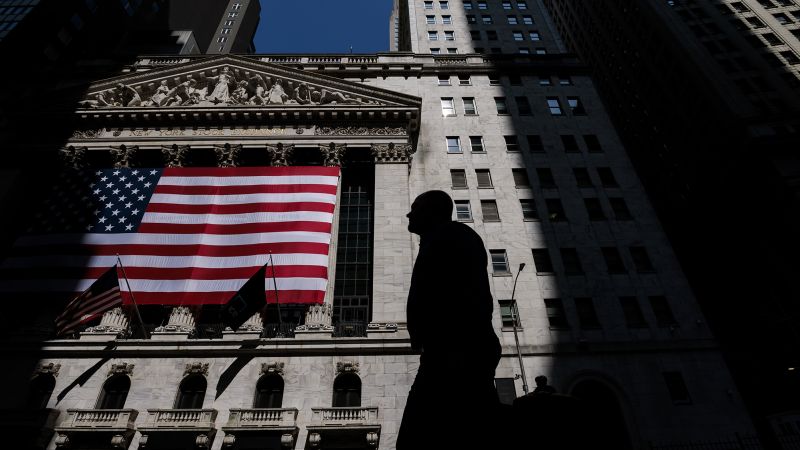Fueled by a resurgent stock market and rising home values, US household wealth hit a record $154.3 trillion during the second quarter of this year, according to federal data.
Consumer wealth has now completely recovered from the recent inflation-driven drop in stock prices and real estate holdings.
Household and nonprofit net wealth increased by $5.5 trillion, or 4%, between the end of March and the end of June, Federal Reserve data released on Friday showed. This follows an increase of $3 trillion during the first three months of the year. The data is not adjusted for inflation.
This bump in wealth was driven mostly by a surge in the value of Americans’ stock market investments, which grew by $2.6 trillion during the quarter. Real estate holdings, including the value of homes, increased by $2.5 trillion.
Household wealth now stands about $2 trillion above the prior record of $152 trillion set in early 2022 — which should give consumers a cushion to weather future economic storms and a potential uptick in unemployment.
Surging inflation prompted the Fed to spike interest rates beginning in March 2022 at the fastest pace in four decades. Those rate hikes rocked financial markets, crushing the value of stock holdings, cooling the housing market and raising the specter of a recession.
“Even with the recent gain, wealth is little changed over the past year, limiting its contribution to spending,” economists at Moody’s Analytics wrote in a report on Friday. “Further, volatility in wealth since the onset of the pandemic will remind households of the fragility of any gains.”
The stock market has rebounded in tandem with the US economy. Goldman Sachs recently cut its view on the probability of a US recession over the next 12 months to just 15%, down from 35% earlier this year. There are rising hopes of a soft landing, where inflation is tamed but a recession is avoided.
“I am feeling very good about that prediction,” Treasury Secretary Janet Yellen told Bloomberg News on Sunday when asked about the prospects of a soft landing. “I think you’d have to say we’re on a path that looks exactly like that.”
Despite the economy’s improving fortunes, the public is not giving the White House credit.
A staggering 58% of the public says President Joe Biden’s policies have made economic conditions in the United States worse, according to a CNN poll released last week. That’s up from 50% last fall.
Similarly, 63% of voters don’t like how the president has handled inflation, according to a Wall Street Journal poll published Monday.
And there are signs that some Americans are struggling to get by.
Just as wealth hit a record high during the second quarter, credit card debt surpassed $1 trillion for the first time ever, the New York Federal Reserve found.
New credit card and car loan delinquencies have exceeded pre-Covid levels, with Macy’s sounding the alarm on a spike in customers who are failing to make credit card payments.
JCPenney CEO Marc Rosen recently told CNN that his company’s core customers — working-class families — are increasingly relying on credit cards, falling behind on bills and shifting to cheaper private label brands.
“Our customers are America’s working families. They’re the teachers teaching our kids in schools, the construction workers building our homes and medical workers taking care of us,” Rosen said. “And that customer is facing a tougher economic environment.”
Read the full article here




